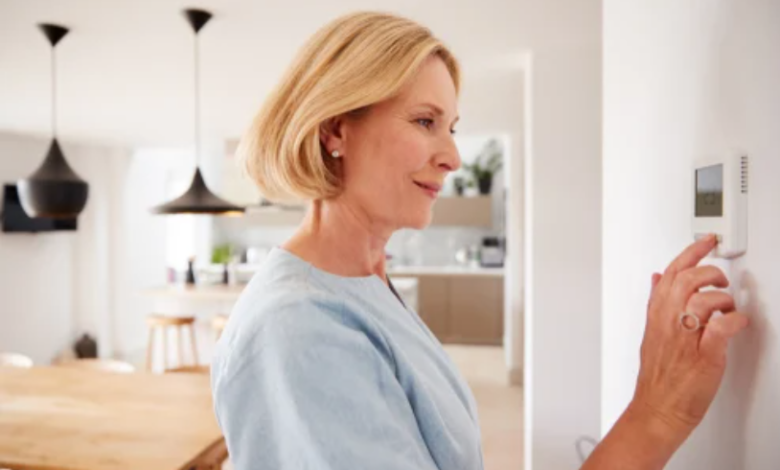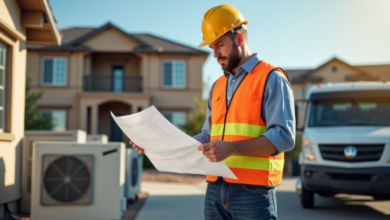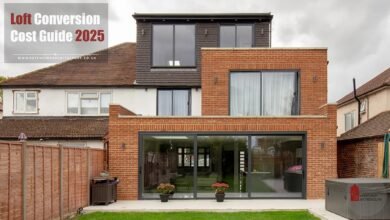Why Energy Efficiency Should Be a Priority in Retail HVAC Projects

Efficient HVAC systems help businesses control energy consumption, reduce overhead costs, and maintain comfort for customers and employees. With rising energy costs and stricter sustainability goals, prioritizing energy efficiency—such as in the Arundel Mills Mall HVAC project by Beltway Air Conditioning & Heating—strengthens the bottom line for years to come while also supporting compliance with evolving regulations.
The Real ROI of Efficient HVAC
Energy efficiency for retail HVAC is not a fad; it’s a key energy efficiency investment with real ROI. From trimming expenses to enhancing brand reputation, efficient HVAC systems deliver significant energy savings for retailers.
1. Lowering Bills
Retailers can make big HVAC dollars by upgrading to the latest technologies. Well-designed control algorithms, for example, can reduce energy by as much as 30%. Sealing and insulating ducts further increases efficiency, reducing energy waste by 20%.
Periodic energy audits assist in recognizing inefficiencies, making certain that systems run optimally. Smart thermostats are another money saver. These gadgets enable fine energy control, turning down the thermostat during off hours so it’s not burning energy needlessly.
Things like powering down idle equipment, setting back thermostats during off hours, etc. All help reduce those monthly bills and maximize operational savings.
2. Boosting Sales
A good shopping experience has a direct impact on consumer actions. Pleasant indoor temperatures delivered by energy-efficient HVACs enable shoppers to stay longer and purchase more. Improved air quality increases the consumer experience, resulting in cleaner, healthier spaces, attracting return shoppers.
Energy-efficient lighting and HVAC upgrades also create welcoming retail spaces that attract environmentally conscious shoppers, generating brand loyalty.
3. Enhancing Brands
Sustainability benefits a retailer’s brand. Efficient HVAC sends a message of caring for the planet, and it differentiates brands in competitive markets. LEED buildings, for instance, have an additional premium and appeal to green consumers.
By being efficiency-focused, brands differentiate themselves as unique, intriguing, and planet-conscious to consumers and establish long-term trust. It positions retailers as leaders when it comes to sustainability.
4. Future-Proofing Assets
Investments in high-efficiency HVACs guarantee code compliance with current and future energy codes, safeguarding assets against rising energy costs. Integrating with renewable sources, such as solar or geothermal systems, also reduces grid dependence and increases operating stability.
Studies have proven real monetary value—high-efficiency office buildings enjoy rental value increase, while other industries, such as healthcare, have realized quantifiable ROI on sustainability initiatives.
See also: Low Deposit Home Loans for Budget-Conscious Homebuyers
Beyond Temperature Control
HVAC systems are not solely for temperature, particularly in retail. Best practices in energy efficiency can address the worst issues when it comes to air quality, comfort, and sustainability, saving a great deal of energy, since energy consumption makes up nearly 75% of building energy use globally.
The Comfort-Profit Link
Customer comfort translates directly into sales. Proper HVAC systems take temperature fluctuation out, so customers won’t leave too early due to discomfort. Balanced airflow and humidity management complete the experience, improving the shopping atmosphere.
Employees also experience a uniform indoor climate, staying more focused and productive. This improves morale, reduces turnover, and reduces recruitment costs.
The Shopper Experience
Energy recovery ventilation, utilized in most modern HVAC installations, keeps air indoors clean and fresh, and healthier customers. Sustainability impacts buying choices, and consumers will go with brands that share similar environmental philosophies. Traders putting in green HVAC systems, for example, geothermal heat pumps, are targeting this expanding market share.
The Employee Factor
Well-ventilated, pleasant working conditions translate to increased worker satisfaction and well-being. Fewer “sick building syndrome” cases mean fewer sick days, better morale, and higher retention.
Common Retail Energy Traps
Retailers waste energy using old HVAC systems, neglect, leaks, and incompatible controls. Upgrades, maintenance scheduled periodically, sealing leaks, and calibration can greatly increase efficiency and save money.
Outdated Systems
Older HVAC equipment consumes more energy and is more expensive to run. High-SEER units or recent smart HVAC technologies increase responsiveness and energy consumption and reduce waste and long-term operating costs.
Poor Maintenance
Neglect leads to increased energy consumption and reduced system life. Regular filter cleaning or replacement, performance checks, and normal inspections can prevent expensive repairs and improve efficiency.
Building Leaks
Uninsulated doors, windows, and ductwork are some of the principal reasons for energy loss. Energy auditing and targeted insulation upgrades can correct the situation, especially in areas with harsh weather.
Mismatched Controls
Lousy HVAC controls are a major waste. Retailers need to calibrate controls to building zones and needs, installing zoning systems where possible.
Misaligned thermostats waste energy, while building management systems simplify operations by automating setpoints and system schedules. Tailored controls make sure resources are flowing where they need to be and cut down on wasteful use.
Maximizing Retail Success Through Energy-Efficient HVAC Solutions
Retail HVAC energy efficiency is not all about saving dollars. It saves on energy bills, increases system performance, and puts more comfort in a customer’s in-store visit. Efficient systems save energy, enhance indoor air quality, and align with green ambitions. Retailers operating with wiser HVAC solutions are future-proofing themselves against some regulations and shifting customer expectations. They create a stronger and more resilient operation.
Prioritizing efficiency is not just about saving today. It sets businesses up to grow, builds customer satisfaction, and fortifies their bottom line. It’s never too soon to make these changes, and they pay dividends in the future. Retailers have more to gain than they invest in being efficient. Because smart investments now lay the groundwork for more resilient, more sustainable businesses in the future.




